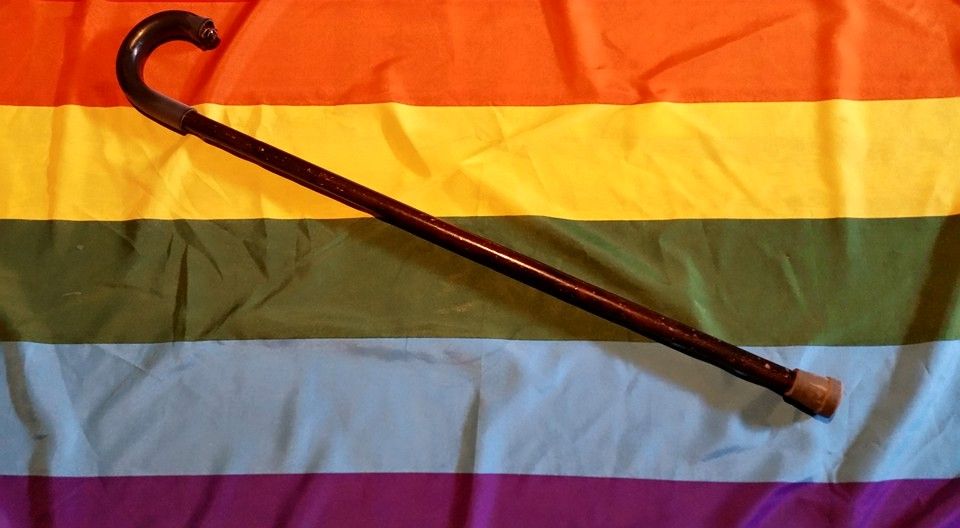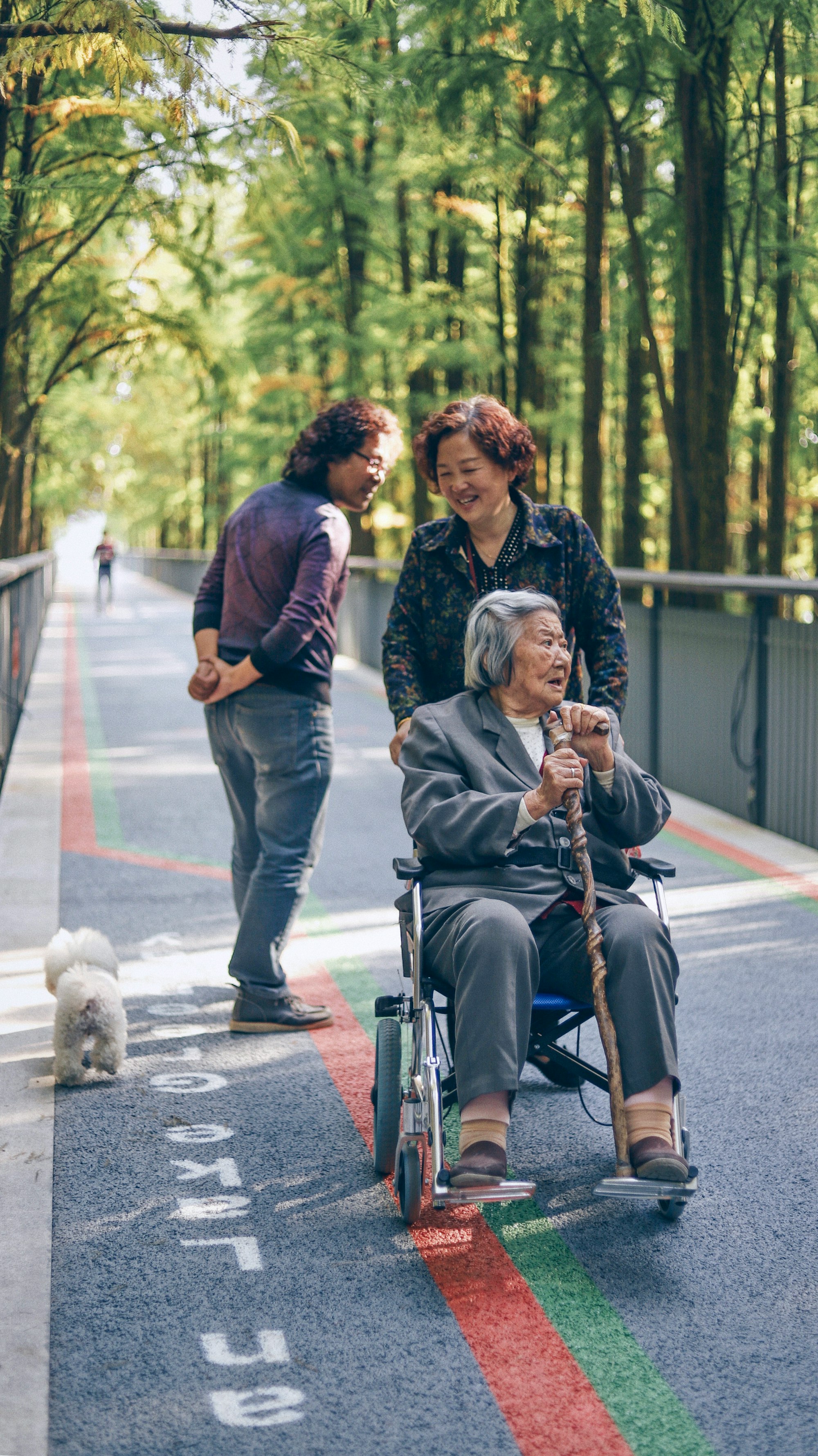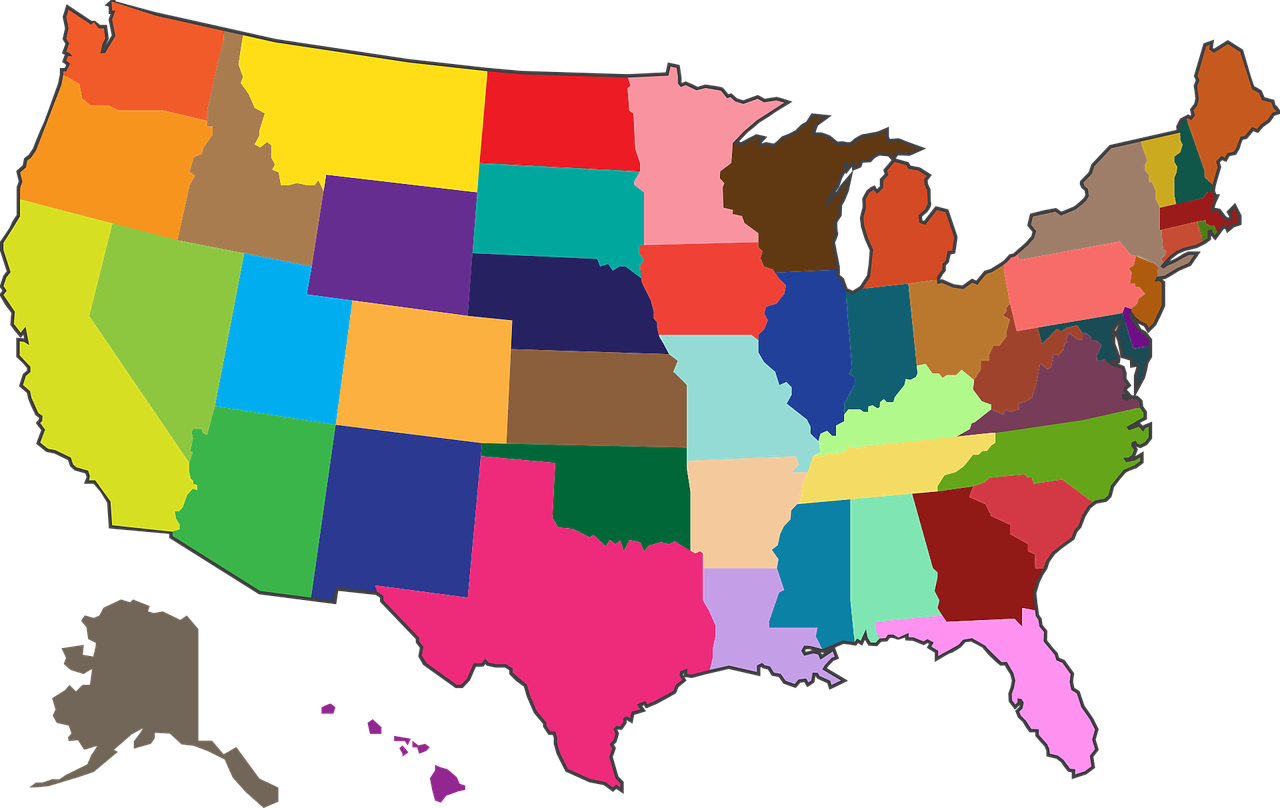Aging LGBT Population Needs To Prepare For Their Trip Over The Rainbow
As many as 25% of Baby Boomers are "elder orphans" without familial support. Chase Brexton Health Care launches SAGECAP Baltimore to provide resources, education, and support for unpaid LGBT caregivers in the community.

By David Heitz
Gay people tend to spend much of their lives thinking they’ll never get old.
And then they do. Sadly, often alone
“In the LGBT community we are very ageist,” said Nate Sweeney, executive director of the LGBT Center at Chase Brexton Health Care in Baltimore. “We don’t like to think about ourselves getting older, or getting sick.”
I wrote a this two-part series on LGBT caregivers. The reality is many LGBT people find themselves alone. Without blood relatives, children or a spouse when they get into their golden years. They often have no one to rely upon than other LGBT people, who often are not their partner or spouse, to care for them.
“If I get hit by a car, my husband can go into the hospital. He can tell them what my wishes are. That’s a great piece of marriage equality,” said Sweeney, who is legally married. “But the vast majority of LGBT people are not married, have no children, and live alone.”
For those who do have partners, or if they are not legally married that becomes a problem. If they don’t have advance directives in place, who will make end of life decisions for them?
LGBT older adults are part of a vast group of Baby Boomers called “elder orphans.” As many as 25 percent of Boomers are elder orphans, as CNN reported in May.
That’s why Chase Brexton just launched a new program called SAGECAP Baltimore.
The program provides:
- Resources
- Education
- Support for informal, unpaid LGBT caregivers in the community.
“LGBT people for years have been caring for their families of choice,” Sweeney said. “They moved across the country, and they are isolated from blood relatives. Some started caring for an ex partner from 15 years ago. All because they don’t want that crazy sister that’s five states away making medical decisions.”
There also is a SAGECAP program in New York City, but it is run out of a senior center, not a healthcare facility. SAGE is an acronym for the New York-based Services & Advocacy for Gay, Lesbian, Bisexual & Transgender Elders.
According to SAGE, family members provide 80 percent of long-term care in the United States. Older LGBT adults often are estranged from their families. LGBT seniors are twice as likely to live alone and three times more likely to be without children.
One Stop Elder Care, Caregiver Referrals
The Chase Brexton program is being funded with a three-year grant. This grant is from the Harry and Jeannette Weinberg Foundation. This program is unique. The Chase Brexton is a federally funded, holistic healthcare center.
Services range from LGBT-centered caregiver support groups to full blown case management. “As you know, it’s very isolating being the caregiver,” Sweeney said. “So being able to reach them and find them is difficult. That’s why we’re partnering with other interested providers. so they can make referrals to our services. We’re hoping we’re building something that can be replicated at other LGBT health centers.”
On the national level, SAGE has provided cultural sensitivity training to several organizations. They have worked with the Alzheimer’s Association of America. The Alzheimer’s Association has provided caregiver support training to SAGE.
At Chase Brexton, caregivers can get support. They also receive referrals for themselves. This occurs when they bring their loved ones for medical appointments. Services may include referring a caregiver to a mental health therapist, for example.
Chase Brexton also will be able to tell LGBT people about the necessary paperwork they need. Advanced planning designates someone to make their healthcare and end of life decisions. It’s not something many LGBT people think about.
More on Aging LGBT Population Need To Prepare For Their Trip Over The Rainbow…
A PBS documentary, “Before you Know it,” was enlightening . I reviewed this for Healthline Contributors. Filmmaker P.J. Raval said, “When people watch this film, I hope they learn the aging process does not discriminate. It’s actually something that happens to all of us. Gay men are having some of the most extreme examples of ageism. They experience isolation, without a family structure, often single and with no children. They have to make their own communities and find their own communities.”
Elder Care: An American Healthcare Crisis
Caring for the elderly has become a healthcare crisis in America. Over 10,000 Baby Boomers turn 65 years old every single day. Many Baby Boomers already are caring for their own parents. Not to mention that they’re getting older themselves
Among Baby Boomers who care for their parents, it is their LGBT children that step up to the plate. The LGBT community is willing to provide care compared to their heterosexual siblings. Sweeney said. And it’s often because of the very thing that threatens their own livelihood when they get older – they’re alone.
“Our healthcare system for elders in this country needs a lot of work,” Sweeney said. “We don’t value the elderly in our society. All these systems have been brought up not to value our elders, nor the staff who works in these fields.”
I wrote a story for Healthline News. “The People Caring for Your Parents Live in Poverty,” reports on the low pay that home health care workers receive.
For LGBT seniors who seek care in an alternative setting, they often find forced back “into the closet”. For seniors who blazed the trail for equal rights for gay men and lesbians, it adds insult to aging. I wrote about that last year in this story for Los Angeles Times Content Solutions.
SAGECAP Launched in Baltimore
SAGE is working nationally to change that reality. It has provided to training to more than 3,000 elder workers in 27 states. They help to create more affirming environments in nursing and assisted living facilities. Training varies from online courses to in-depth, on-site training. The organization even provides facility audits.
“Reforming the entire aging services industry…it’s a huge undertaking,” Sweeney said. “There are 11,000 McDonald’s in the U.S. There are 16,000 nursing homes. That’s not something we think about when it comes to making systemic changes. The corner we’re starting in is about the caregiver. It is about helping LGBT older adults prepare for their own futures.”
SAGE's Ongoing Commitment to the LGBTQ Community's Aging Issues in 2023 and Beyond
SAGE, or Services and Advocacy for LGBTQ Elders, has been at the forefront of addressing the unique challenges faced by older adults in the LGBTQ community. As we enter 2023, SAGE continues to make substantial strides in providing vital services, advocacy, and support for LGBTQ elders. In this update, we will explore what SAGE has been doing in 2023 and what is on their agenda for 2024 to better serve this marginalized group.
SAGE's Work in 2023
- Expanding Services for Older Adults: One of SAGE's primary missions is to provide comprehensive services to LGBTQ elders. In 2023, they have continued to expand their offerings, including support groups, healthcare navigation, social and recreational programs, and culturally competent housing initiatives. These services are crucial in addressing the isolation and discrimination that LGBTQ elders often face as they age.
- Affordable Housing Initiatives: Recognizing that housing insecurity is a significant concern for LGBTQ older adults, SAGE has made strides in 2023 to develop affordable housing options tailored to the needs of this community. These initiatives aim to create safe and inclusive living spaces, reducing the risk of housing discrimination and isolation.
- Advocacy and Policy Initiatives: SAGE has been actively involved in advocating for LGBTQ elders' rights and addressing policy issues that affect their quality of life. In 2023, they have worked to influence legislation that protects LGBTQ elders from discrimination in housing, healthcare, and long-term care settings.
- LGBTQ Cultural Competency Training: SAGE continues to offer cultural competency training to healthcare providers, aging service providers, and institutions, ensuring that LGBTQ elders receive respectful and inclusive care. This training equips professionals with the knowledge and skills necessary to address the specific needs of LGBTQ older adults.
- Mental Health and Wellness: The mental health of LGBTQ elders is a significant concern, given the stigma and discrimination they have faced throughout their lives. In 2023, SAGE has focused on providing mental health resources, including counseling and support groups, to help address the mental health challenges specific to this community.
- Social and Recreational Programs: Combatting isolation and loneliness is a priority for SAGE. They have organized various social and recreational programs, both in-person and online, to create a sense of community and belonging for LGBTQ older adults. These programs provide opportunities for social engagement and peer support.
SAGE's Agenda for 2024
While SAGE has made significant progress in addressing the unique needs of LGBTQ elders, their agenda for 2024 is forward-thinking and aims to further support this community.
- Enhanced Outreach and Education: In 2024, SAGE plans to expand its outreach efforts to reach even more LGBTQ older adults who may not be aware of the services available to them. Education about their rights, available services, and opportunities for community engagement will be a key focus.
- Promoting Age-Friendly Communities: SAGE is committed to promoting age-friendly communities that are inclusive and supportive of LGBTQ elders. They will work with local governments and community organizations to advocate for policies and practices that create welcoming environments for LGBTQ seniors.
- Diversity and Inclusion Initiatives: Recognizing the diversity within the LGBTQ community, SAGE will continue to work on ensuring that their services and programs are inclusive of the unique needs of transgender and non-binary elders, elders of color, and those with various intersectional identities.
- Addressing Healthcare Disparities: In 2024, SAGE aims to intensify its efforts to reduce healthcare disparities among LGBTQ older adults. This includes working with healthcare providers to eliminate discrimination, promote LGBTQ cultural competency, and improve access to quality healthcare.
- Fighting Elder Abuse: Elder abuse is a concern for all older adults, but LGBTQ elders may face unique vulnerabilities. SAGE will continue to work on programs and initiatives to prevent and address elder abuse within the LGBTQ aging community.
- Creating Safe Spaces: SAGE plans to establish more LGBTQ-affirming and welcoming senior centers and community spaces in regions where such resources are currently limited. These spaces will offer opportunities for social interaction, support, and a sense of belonging.
- Intersectional Advocacy: Recognizing that many LGBTQ older adults belong to other marginalized groups, SAGE will continue its intersectional advocacy efforts. This includes addressing the disparities faced by LGBTQ elders with disabilities, low-income LGBTQ elders, and those living in rural areas.
- Research and Data Collection: SAGE will invest in research and data collection efforts in 2024 to better understand the evolving needs of LGBTQ elders. This information will help tailor their services and advocacy more effectively.
Conclusion
SAGE's commitment to the LGBTQ aging community remains unwavering in 2023 and beyond. Their continuous efforts to provide services, advocate for policy change, and create inclusive and affirming spaces have significantly improved the lives of LGBTQ older adults. Looking ahead to 2024, SAGE's agenda is ambitious and forward-thinking, focusing on expanding their reach, promoting inclusivity, and addressing the unique challenges that this community faces.
As the population of LGBTQ elders continues to grow, the work of organizations like SAGE is increasingly crucial. By addressing the unique needs of this community and advocating for their rights, SAGE is making a profound and positive impact on the lives of LGBTQ older adults, ensuring that they age with dignity, respect, and access to the services and support they deserve.
Is this conversation helpful so far?
You might also like this article:



